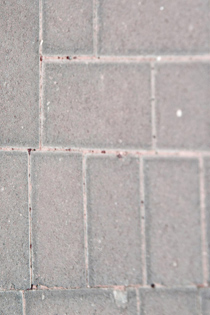Jacques Lévy, Ana Póvoas et Jean-Nicolas Fauchille | 23.01.2020
The book Théorie de la justice spatiale (2018) was published shortly before the outbreak of the political action of the Yellow Vests. The importance of the connections between space and justice in the public debate that followed shows that the spatial dimension of social life is now perceived in France as a component which cannot be reduced to others, more classic, like the economic and political dimensions. The concepts useful to think such a dimension, that the book advances, [...]
Les mutations de l’espace politique et ses enjeux.
Jacques Lévy | 10.01.2020
The major shifts that affect every electoral maps of the West for some decades are crystal-clear and convergent. They make possible simple, formalized propositions. However, some works show a reluctance to embed these changes in these approaches, as our theories of space/politics interactions require significant reshuffles. These novel phenomena generate a disruption that a part of the academic world finds hard to assume. This justifies an overall epistemological reflection on how scientists can encompass novelty in their research practices. [...]
Denis Retaillé | 20.12.2019
The zenith view offered by the maps may have led to the oblivion of their sources : horizontal experiences of space through the practical and theoretical mastery of distance. This oblivion and the figurative object, received as a higher reality in the form of the trace, were instruments of power. But the profusion of sources that are now imposed by alternative channels calls into question the scientific exercise of cartography, forcing us to return to the horizontal dimension of [...]
Marc Winz | 28.11.2019
This essay proposes an exploratory reflection of the heuristic potential of the notion of rhythm, and more precisely that of urban rhythms – a reflection that allows us to examine the relationships between people diagnosed with schizophrenia and the urban environment. The article first proposes a short state of the art of the relationship between cities and psychosis. Then, a brief discussion of the definition and status of the notion of rhythm allows to propose the concept as a [...]
Bianca Botea, Laëtitia Mongeard et Lise Serra | 08.11.2019
This traversal proposes a multidisciplinary analysis of urban transformations and, in particular, urban renewal from the perspective of the production of knowledge by proximity or familiarity. We want to look at urban renewal as a space of resources, links, actions, categories and cognitive universes in which the researcher participates alongside other field actors. This perspective of analysis, which places the researcher amidst people on the ground, is almost absent from studies on urban renewal in France, despite the profusion [...]
Pauline Boivineau | 24.10.2019
Interpersonal relationships and intersubjectivity between artists and spectators are an impalpable space, key to the relational artistic plan, which invites us to extend the reflections of N. Bourriaud on what he calls the relational aesthetic. The base of our study is the participant observation of Dévêtu(e), a creation of the Thé à la Rue company, which allowed us to question the hapticity of art and the positionnality of the researcher, so that we can grasp the mobility of the [...]
Philippe Rozin | 10.10.2019
In this paper we propose to examine the idea of the veil of ignorance developed in John Rawls’s Theory of Justice. Rawls has shown a particular interest in the notion of denial of interest, or social unconsciousness, largely at the base of the veil of ignorance. While the veil of ignorance tends to eliminate sources of disagreement reflecting self-interest, the extension of justice in the social development of individuals in time is far from being completely elucidated. We discuss [...]
Bianca Botea | 03.10.2019
This article is based on an anthropological fieldwork carried out in the urban renewal context of the La Duchère district in Lyon. It attempts to analyse the processes of knowledge and other results of this research by placing them into the environments from which they emerged and into the familiarity and attachment relationships established within them. Considering knowledge experiences is an opportunity to look at the nature of scientific work in the context of urban renewal and to examine [...]
Sonia Dheur et Sven Saupe | 27.09.2019
Metagenomics, also termed environmental genomics, is a recently developed technique aiming at the global characterization of the ensemble of DNAs present at a given site. As such, it gradually establishes itself as a novel form of spatial metrology and as a quantitative and qualitative measure of the DNA content of a portion of space (taken in turn as an indicator of the community of human and non-human life forms present at the sampled site). It is currently being applied [...]
Une approche du quotidien de la rénovation urbaine.
Maïlys Toussaint | 23.08.2019
What can be done when the researcher notices that her methodology of investigation does not apply well to the studied neighborhood ? This research takes place in the Villeneuve of Grenoble, a large neighborhood created as a new center of Grenoble during the 70’s by a pluridisciplinary agency of urbanism and architecture named AUA (Atelier d’Urbanisme et d’Architecture). This urban project, significantly conceived like a social and physical utopia, has become an atypical and complex neighborhood, with its qualities [...]


